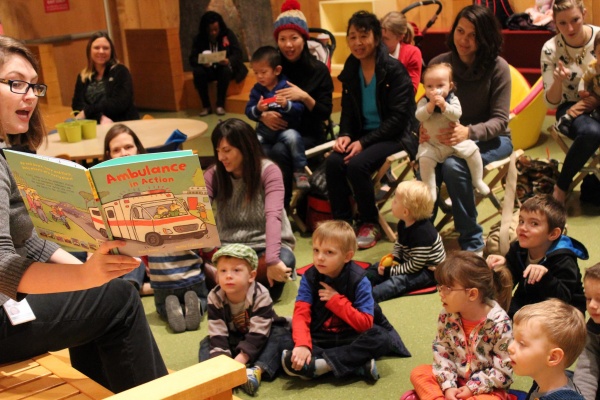
Debating How Kids Learn
Note: This is the third in a three-part ![]() series. Read part 1 | Read part 2
series. Read part 1 | Read part 2
The Missouri Department of Elementary and Secondary Education does not regulate or monitor homeschooling in the state of Missouri, according to the department’s web site.
Additionally, neither the State Board of Education nor the department has authority to issue regulations or guidelines concerning homeschooling.
According to Michelle Clark, communications director for DESE, this lack of oversight would extend to unschooling, even though she had not heard of that education method.
The statute in Missouri says that “any parent, guardian or other person having custody or control of a child between the ages of seven (7) and the compulsory attendance age for the district must ensure that the child is enrolled in and regularly attends public, private, parochial school, home school or a combination of schools for the full term of the school year.” Clark said enforcement of those laws is the responsibility of local prosecuting attorneys.
Valorie Helt, a St. Louis mom who chooses to unschool her five children, ranging in age from newborn to 9 years, said the state laws regarding hours of instruction that apply to homeschoolers also apply to unschoolers. “We are supposed to keep a record of everything we do,” she said. (Read more about Helt’s family in Part 1 of our series.)
Unschooling is an education method that is gaining in popularity, according to advocates of the practice. Sandra Dodd, a prominent national unschooling advocate, defines it as “creating and maintaining an environment in which natural learning can take place.”
Basically, it is a method of education that doesn’t use curriculum or formal lesson plans, but rather lets children learn based on what interests them. (Read more about what unschooling is in Part 2 of our series.)
Not surprisingly, the method has its critics.
Dr. Keith Sawyer is a professor of psychology and education at Washington University in St. Louis. He is a well-published author and leader in the field of learning sciences and a regular speaker on school reform and how people learn.
Sawyer said that some of ideas behind unschooling have merit. “It’s true that most students are bored in school, don’t like it and don’t find it motivating. Even talented students - not just drop-out students - report being pretty bored in school,” he said.
“One of the unschooling premises is that children shouldn’t be made to learn something they don’t want to learn, and research does support the idea that kids learn far better when they are intrinsically motivated (motived by the love of doing it) versus being externally motivated (by grades or money).”
Additionally, Sawyer said that research supports the idea that more effective learning occurs in authentic and situated learning environments - environments in which individuals are learning to use knowledge in a real world setting.
“Classrooms are detached from a real world context, so I can understand how unschooling has the benefits of learning in a project-based, real-world settings,” he said.
However, he said that while there is research to support some elements of unschooling, the fundamentals are misguided.
“The whole purpose of schooling is to create a learning environment which will accelerate and support the most optimal kinds of learning. It is true that people can learn by themselves, but they will learn more effectively where the goal of the learning environment is to help them learn in the most effective and efficient way.”
Sawyer said that is why societies developed structured learning environments, which have been around since the onset of reading, writing and literacy. “Even before we had formal schools, we had apprenticeships and religious instruction so that people could learn to read and teach the Bible,” he said. “The notion that people will learn best when completely removed from any designed learning environment isn’t valid.”
Sawyer acknowledged that there are significant issues with school settings today and that reform is necessary. “I have no problem with parents who are working to find alternative designed learning environments, but to say we don’t need ANY kind of designed learning environment is ridiculous,” he said.
Dodd disagreed, saying, “Our entire life created a learning environment for our children, every day, at home or out in the world.”
She added that there was a time when only scholars had access to tablets and writing, so a student needed a scholar to share those materials in order to learn. “In 2011, access to the written word is everywhere,” she said. “In a family with books, magazines, a library card and the Internet, that is a world of literacy unprecedented in any time before this.”
On the practice of “radical unschooling,” where the methods of unschooling are more of a lifestyle and are also applied to parenting practices, meaning no bedtimes or limits on access to media, Sawyer said that’s a completely different topic. “That’s not just unschooling, it’s unparenting,” he said. “It’s a huge leap from unschooling to unparenting.”
Dodd countered that it takes more parenting to be with a child directly as he lives and learns, no matter what time it is, than it does to parent by the clock and tell a child to go to bed regardless of what he’s doing.
“I understand that it’s difficult to understand unschooling,” she said. “Even for those who want to understand it, it takes awhile. I would never speak of something I had never seen, nor write about a country I had never visited, nor review a food I had never tasted.”
By Michelle Cox, Contributing writer for St. Louis Kids Magazine and Smartparenting





















